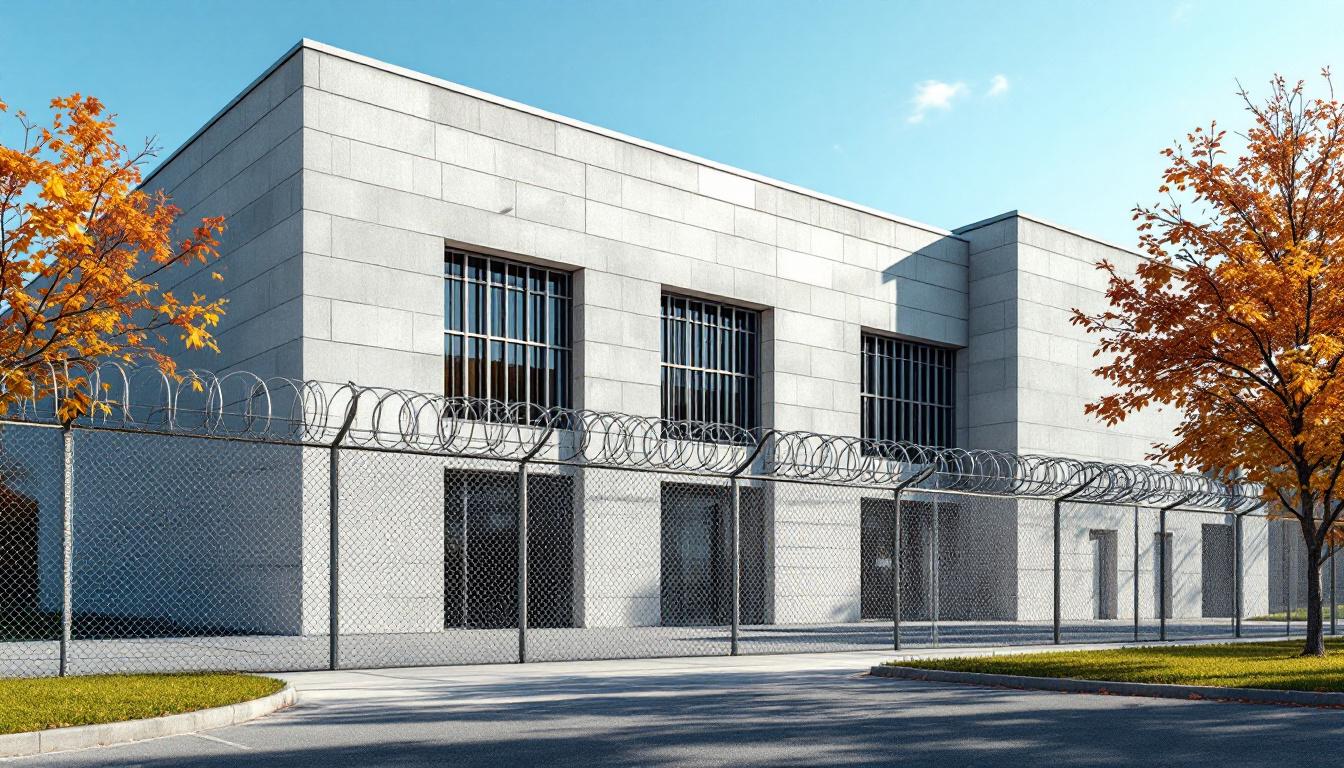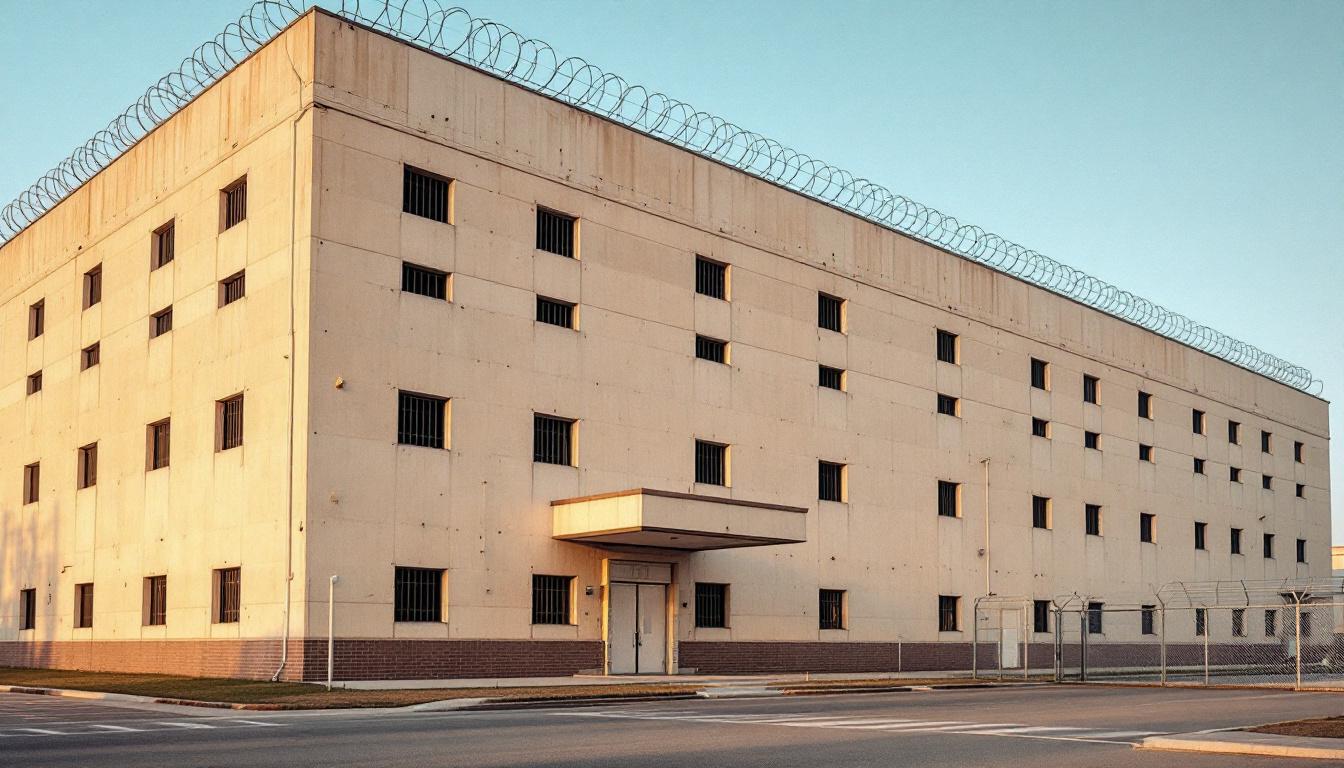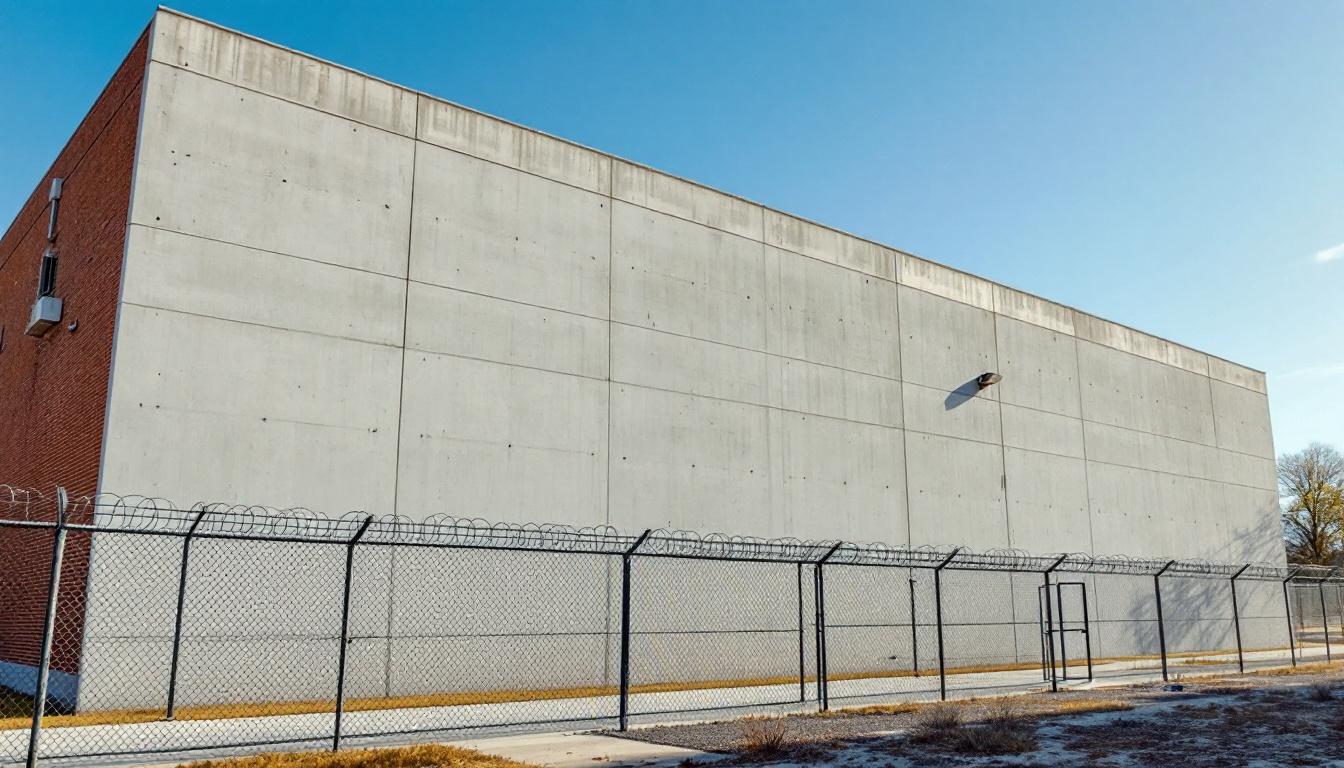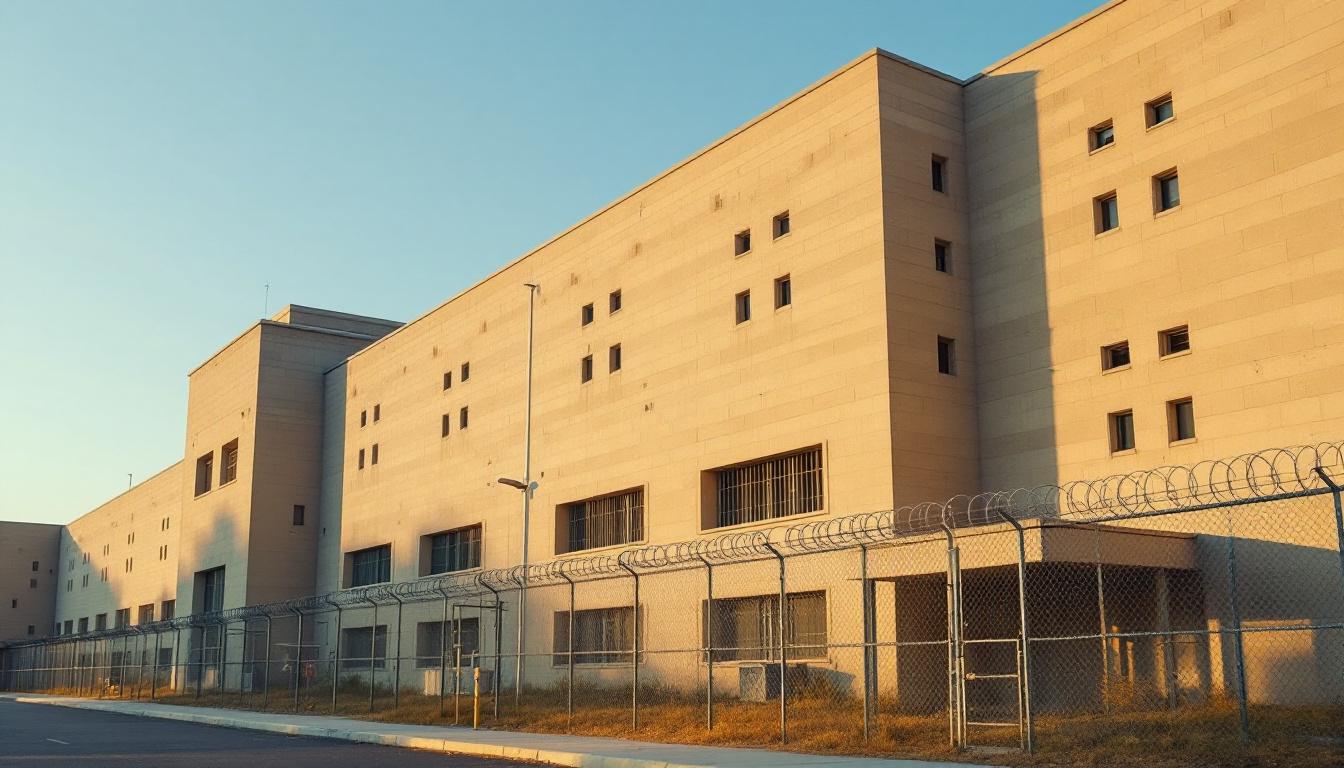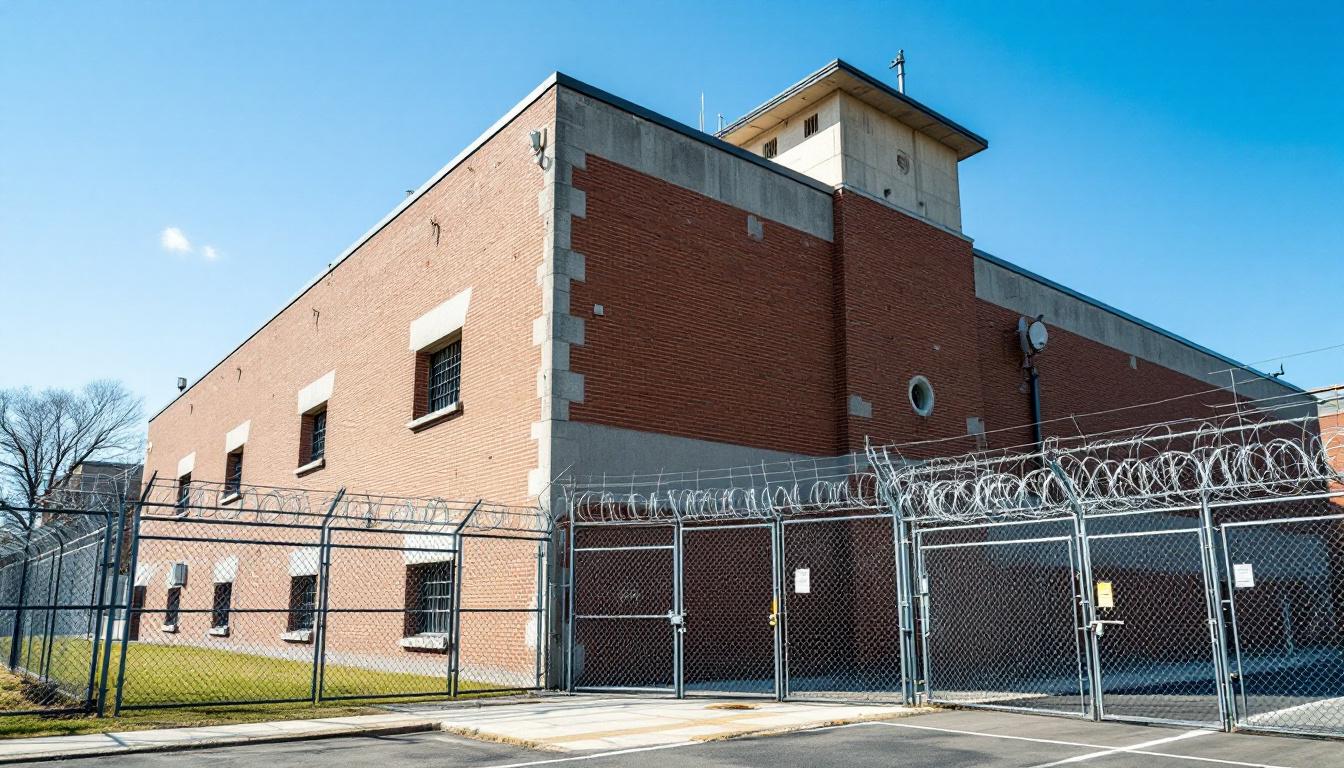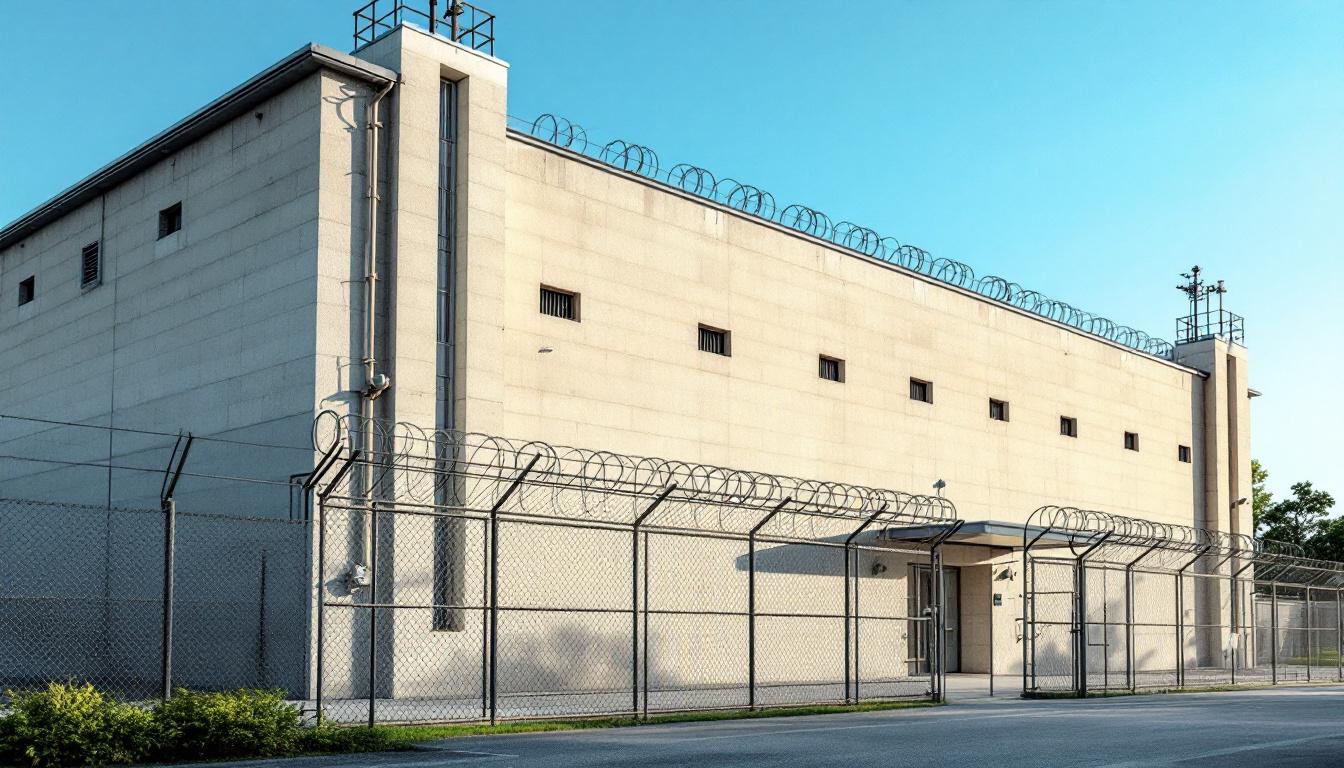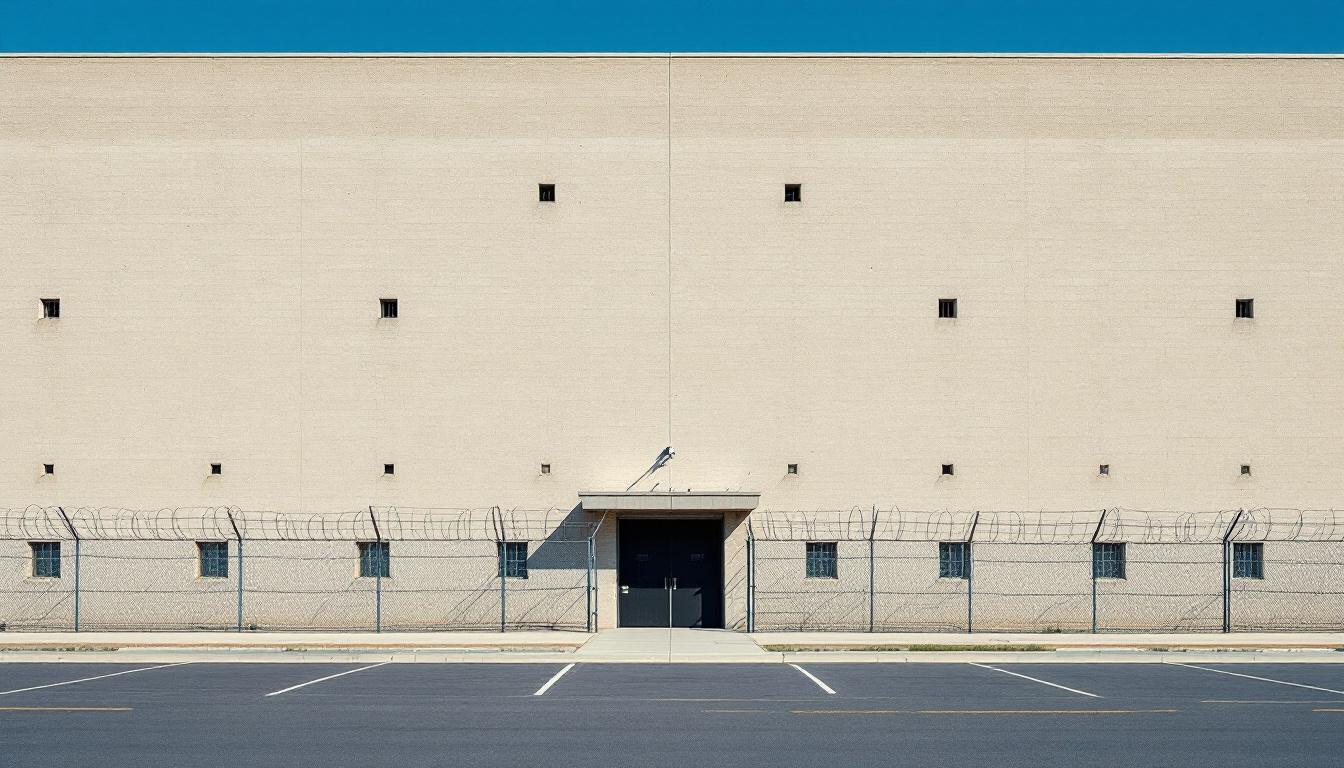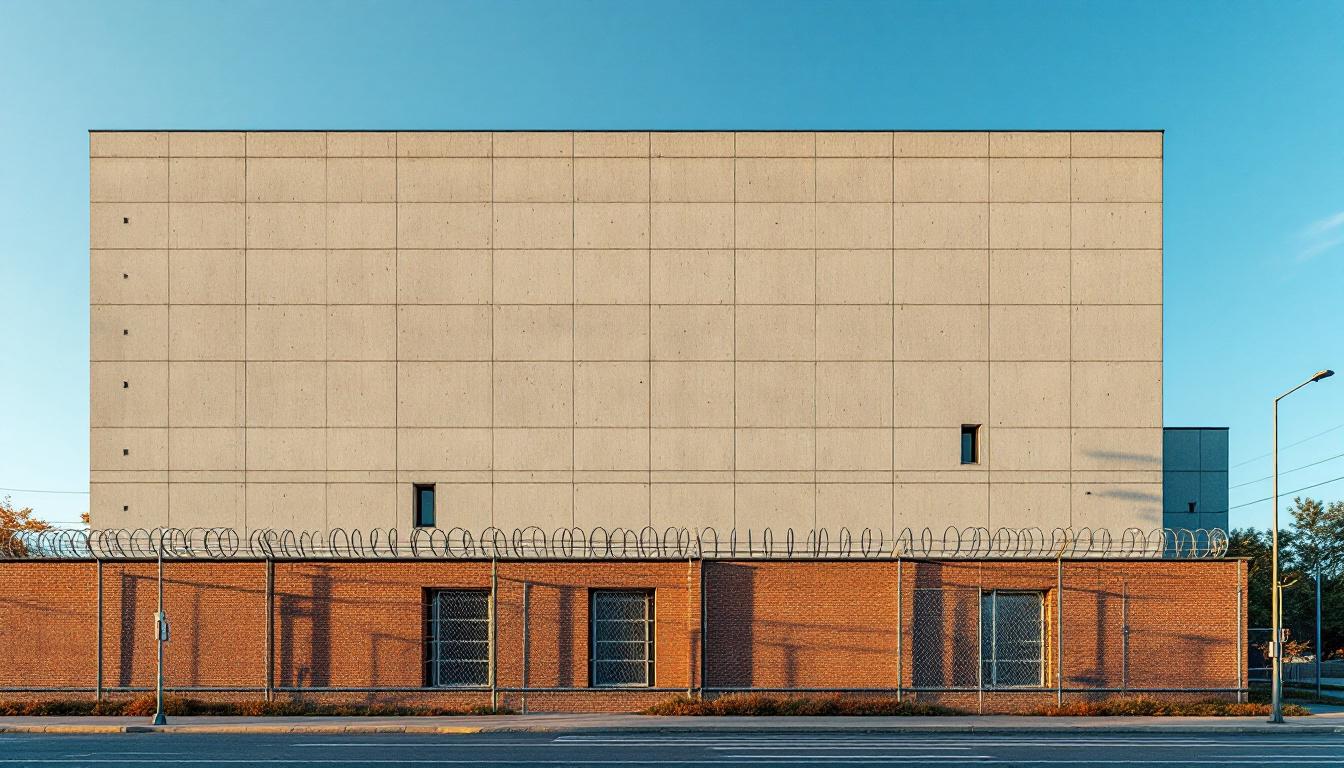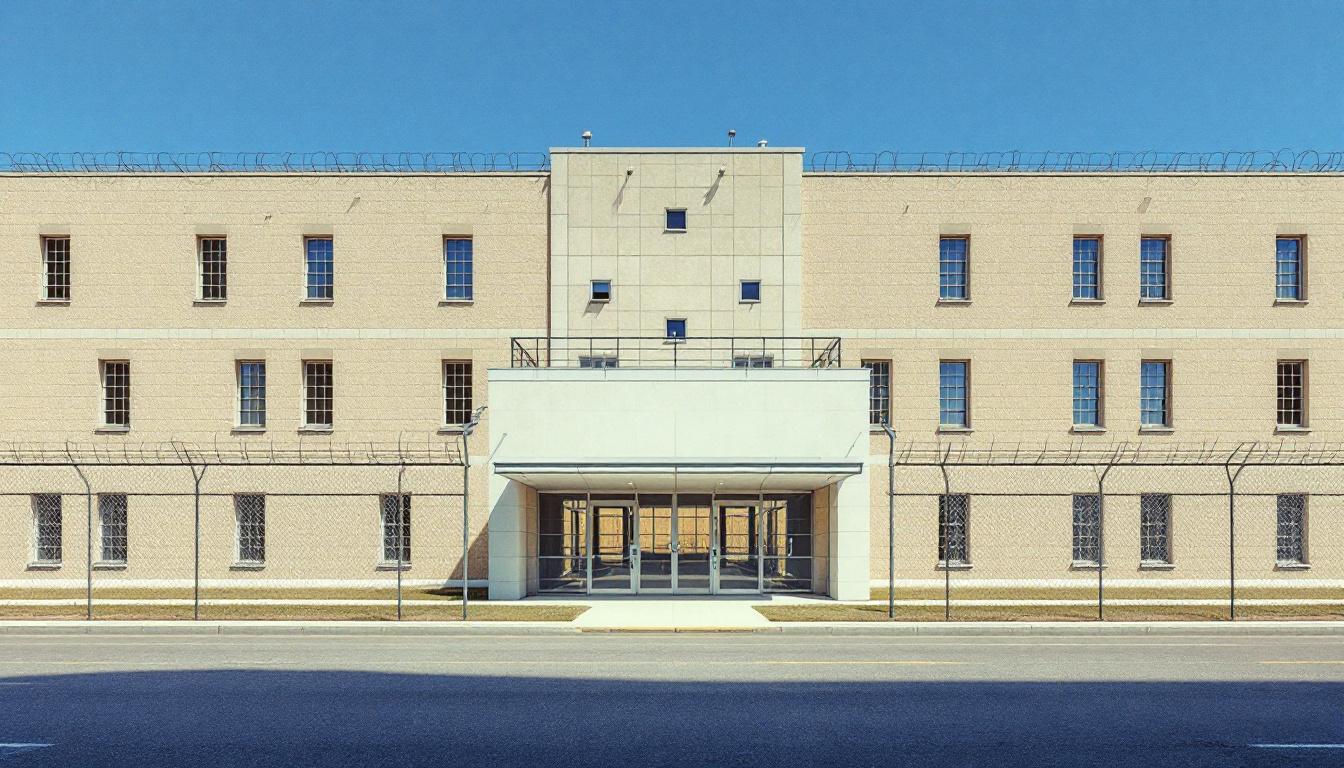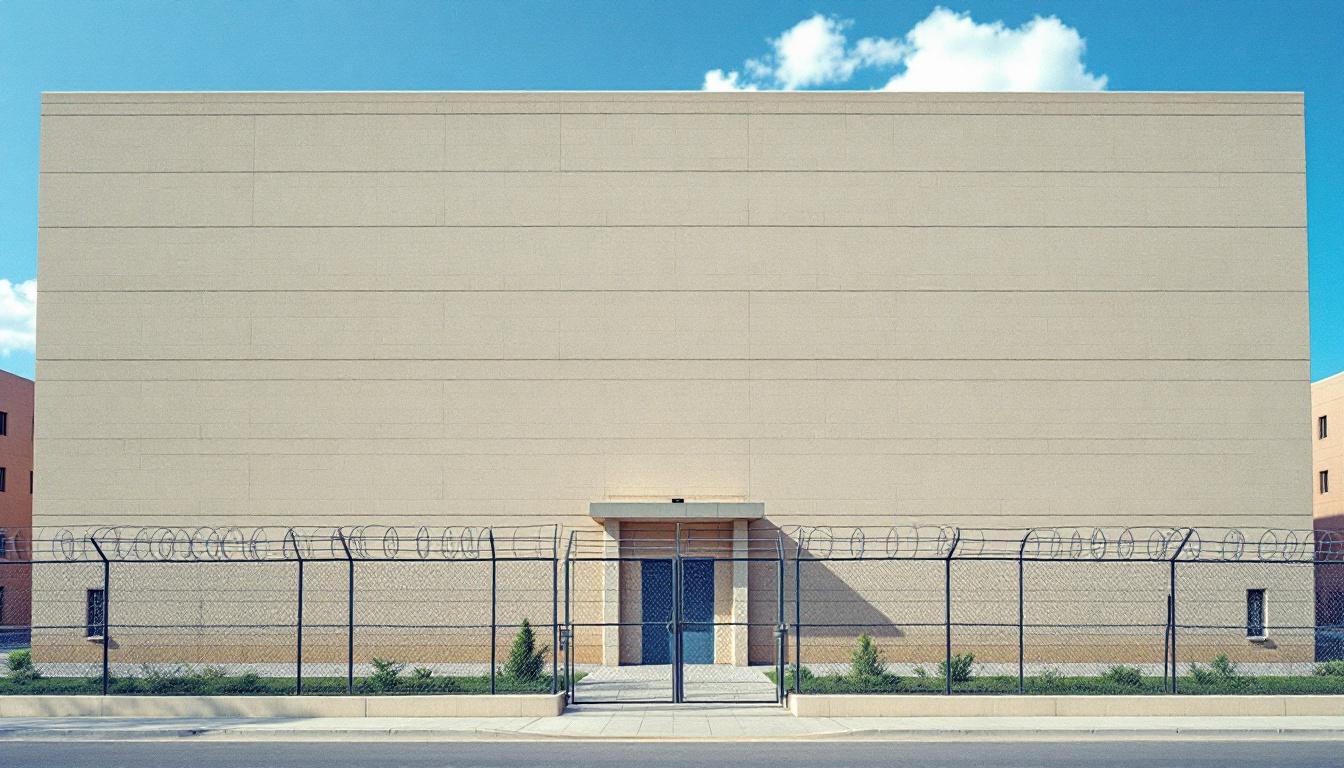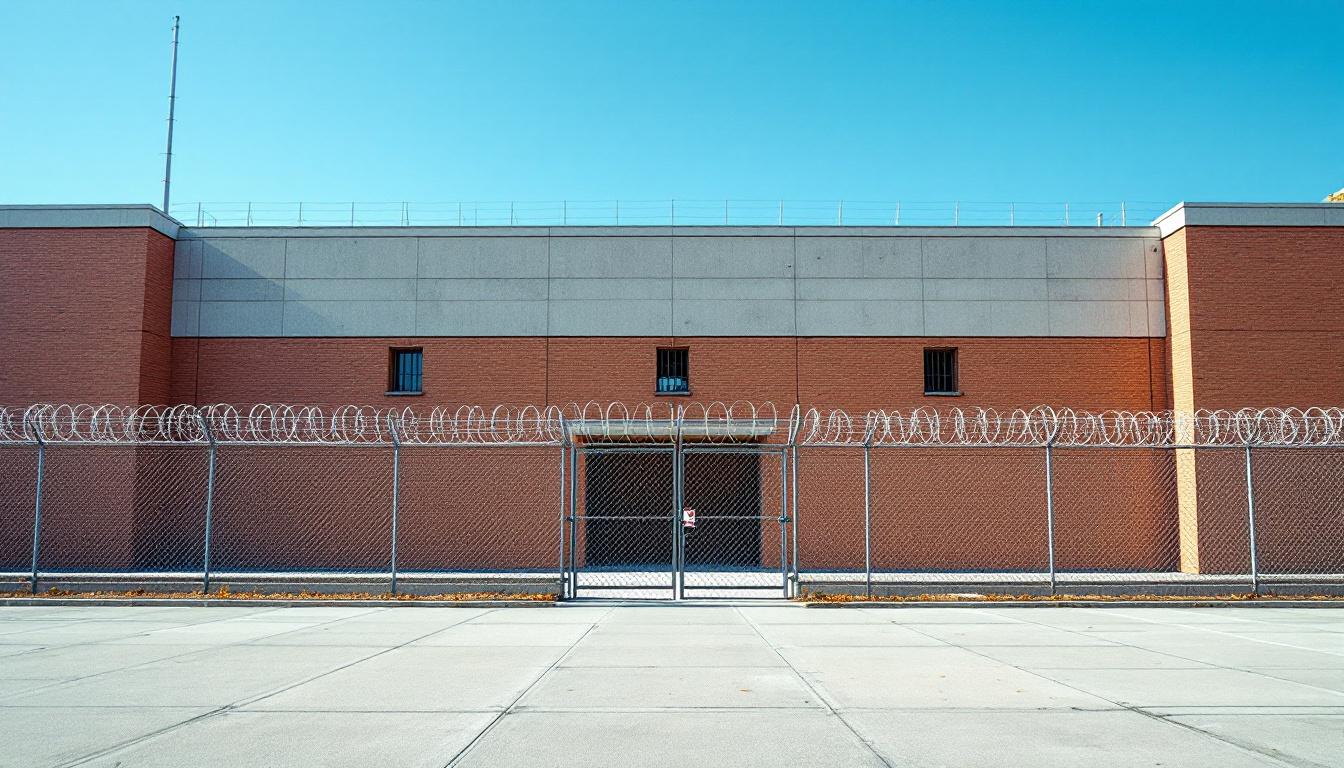
Quick Navigation
How to contact an inmate at Marion Correctional Institution
This comprehensive guide will walk you through how to connect with an inmate at Marion Correctional Institution. Follow the steps below to find an inmate and send letters and photos:
- Search for the inmate using our search tool below
- Create your account or log in to Penmate
- Write your message (up to 6,000 characters)
- Send instantly - inmates receive printed copies daily
Find an Inmate
Search for an inmate to start communicating today
Tip: You can search by first name, last name, or inmate ID number
To contact a person at Marion Correctional Institution start by searching for the person on the official facility website. Perform a search by following these steps:
- Step 1: Enter their first name and last name into the search form and click "Search"
- Step 2: Locate their inmate record
- Step 3: Write down their Inmate ID and any housing information provided
Important! Be sure to enter the person's full name. Nicknames should not be used.
How to Send Messages to Inmates

You can use your phone or computer to send emails, letters, and photos to an inmate. Messages are sent electronically to inmate tablets or kiosks at the facility. If you would like to send a message, start by searching for an inmate at Marion Correctional Institution.
Sending Photos and Postcards

A great way to send love and support to a loved one at Marion Correctional Institution is to send photos and postcards. It only takes a few minutes to send photos from your phone and it makes a huge difference. You can also mail postcards with words of support and inspiration, or design your own postcard for special moments like birthdays and holidays.
Important! Be sure not to send any explicit photos or they may not be approved by the facility. You can also use a photo printing app like Penmate to make sure your photos are printed at the correct size (4x6 or 3x5) and are mailed according to the rules and regulations of Marion Correctional Institution.
Frequently asked questions about Marion Correctional Institution
-
How long does it take to deliver a message?
If you're sending an email message your letter is usually delivered within 24-48 hours. For messages sent via mail you should expect delivery within 3-7 days. All messages will need be approved by Marion Correctional Institution.
-
How much does it cost to send a message to Marion Correctional Institution?
You can send a message free using your phone or mail a message via USPS for the price of a $0.60 stamp and envelope. You can also purchase credits or e-stamps from services starting at $1.99.
-
What services can I use to contact an inmate at Marion Correctional Institution?
Penmate
You can use Penmate to send letters and photos to an inmate from your phone. It's an easy way to stay in touch during your loved one's incarceration. Use the inmate locator to find an inmate's location and contact information, then you can send messages within a few minutes.
Securus messaging
Securus may be another option for communicating with an inmate at Marion Correctional Institution. You can create a friends and family account and purchase credits to send messages. All messages will be reviewed and must be approved by the facility.
JPay
Some county jails and state prisons may support sending messages with JPay. You must register an account with the system, find your loved one, and purchase stamps to send messages. For some locations you can also attach photos.
Smart Jail Mail
You may also check if Smart Jail Mail is available at Marion Correctional Institution. Smart Jail Mail is operated by Smart Communications and has contracted with some state and county jails. After purchasing credits, your messages and photos are sent to the facility, printed out, and then handed out to your loved one.
-
What is the mailing address of Marion Correctional Institution?
Mailing address:
Marion Correctional Institution
3269 NW 105th St
Ocala, FL 34475
Phone: (352) 401-6400Business hours:
- Monday: Closed
- Tuesday: Closed
- Wednesday: Closed
- Thursday: 9:00 AM – 3:00 PM
- Friday: 9:00 AM – 3:00 PM
- Saturday: 8:15 AM – 3:00 PM
- Sunday: 8:15 AM – 3:00 PM
-
What are the visiting hours at Marion Correctional Institution?
Visiting hours at Marion Correctional Institution vary by housing unit and security level. Generally, visits are scheduled on weekends and holidays, with some facilities offering weekday visits. Contact the facility directly at (352) 401-6400 or check their website for the current visiting schedule. Visits typically last 30-60 minutes and must be scheduled in advance.
-
What items are prohibited when sending mail to Marion Correctional Institution?
Prohibited items typically include: cash, personal checks, stamps, stickers, glitter, glue, tape, staples, paperclips, polaroid photos, musical or blank greeting cards, hardcover books, magazines with staples, and any items containing metal or electronics. Only send letters on plain white paper with blue or black ink. Photos must be printed on regular photo paper (no Polaroids). Always check with Marion Correctional Institution for their specific mail policies.
-
How do I send money to an inmate at Marion Correctional Institution?
You can send money to an inmate at Marion Correctional Institution through several methods: 1) Online using JPay, Access Corrections, or the facility's approved vendor, 2) Money orders mailed directly to the facility with the inmate's name and ID number, 3) Kiosks located in the facility lobby, or 4) Over the phone using a credit or debit card. Fees vary by method, typically ranging from $2.95 to $11.95 per transaction.
-
Can I schedule a video visit with an inmate at Marion Correctional Institution?
Many facilities now offer video visitation as an alternative to in-person visits. At Marion Correctional Institution, video visits may be available through services like Penmate, Securus Video Connect, GTL, or ICSolutions. Video visits typically cost $10-20 for 20-30 minutes and must be scheduled in advance. You'll need a computer or smartphone with a camera and reliable internet connection. Contact the facility for their specific video visitation policies and approved vendors.
-
What identification do I need to visit an inmate at Marion Correctional Institution?
All visitors must present valid government-issued photo identification such as a driver's license, state ID, passport, or military ID. Minors must be accompanied by a parent or legal guardian who can provide the minor's birth certificate. Some facilities require visitors to be on the inmate's approved visitation list, which may require a background check. Contact Marion Correctional Institution for specific ID requirements and visitor approval procedures.
-
How can I find out an inmate's release date?
To find an inmate's release date at Marion Correctional Institution, you can: 1) Use the online inmate search tool if available, 2) Call the facility's records department, 3) Contact the inmate's case manager or counselor, or 4) Have the inmate provide this information during a call or visit. For privacy reasons, some facilities only release this information to immediate family members.
Facility Overview
Contact Information
Marion Correctional Institution3269 NW 105th St
Ocala, FL 34475
Phone: (352) 401-6400
Official Website
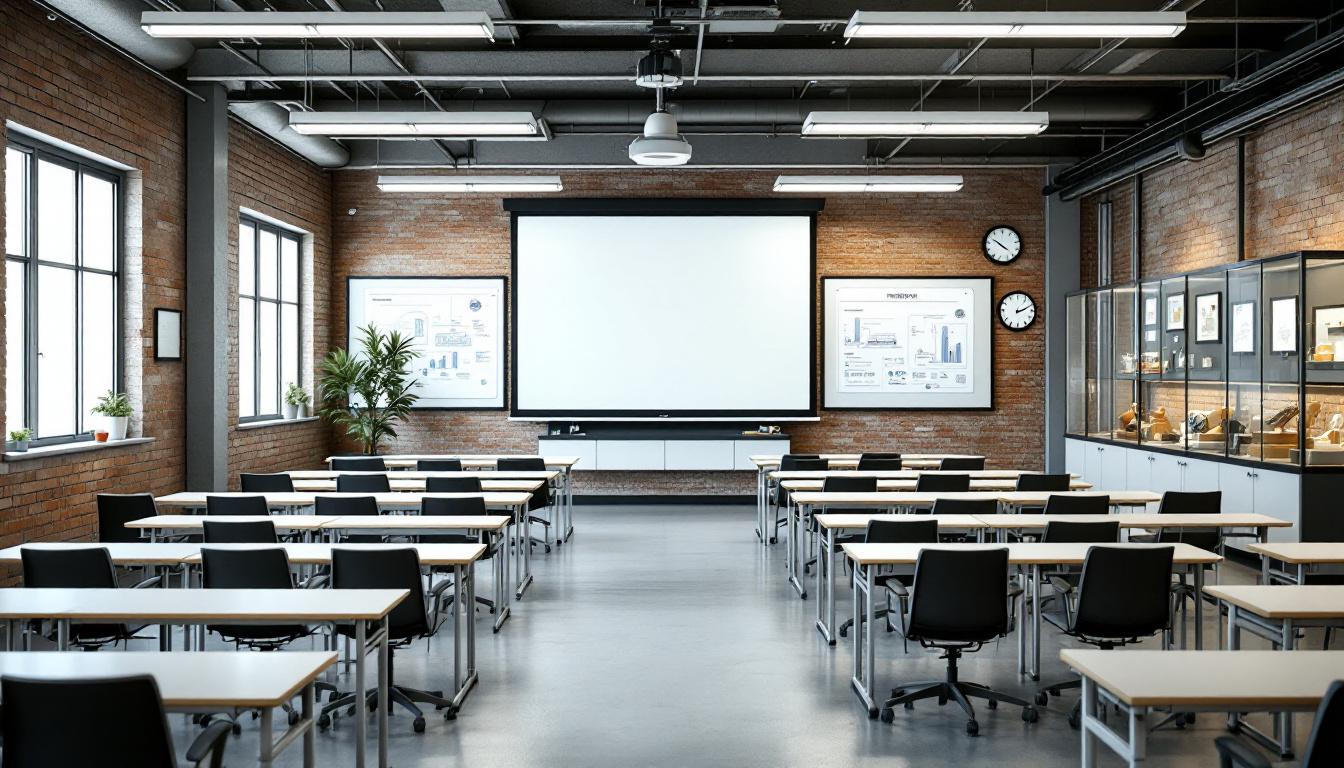
About Marion Correctional Institution
Correctional institutions serve as vital components in Florida's justice system, bridging the gap between accountability and community reintegration, with Marion Correctional Institution representing this mission within the Tampa metropolitan area. This FL correctional facility operates within a framework designed to balance public safety concerns with meaningful opportunities for personal transformation and skill development.
Positioned in the dynamic Tampa region, Marion Correctional Institution typically provides the population services that extend beyond basic housing to encompass educational programming, vocational training opportunities, and behavioral intervention initiatives. The facility generally maintains connections with local community organizations and faith-based groups that may offer mentorship and support networks for individuals preparing to return to their neighborhoods. These collaborative efforts often include job readiness programs, substance abuse counseling, and family reunification services that recognize the importance of maintaining healthy relationships during incarceration.
The correctional institution's approach to rehabilitation emphasizes preparing individuals for successful community reintegration while maintaining the security measures necessary to protect both residents and staff. Through structured daily routines, educational opportunities, and work programs, the facility aims to address underlying factors that may have contributed to criminal behavior. This comprehensive model reflects Florida's broader commitment to reducing recidivism rates and supporting families affected by incarceration, ultimately contributing to stronger, safer communities throughout the Tampa Bay area and beyond.
Programs & Services
Comprehensive support services form the foundation of rehabilitation efforts, helping the population develop essential skills for successful community reintegration. These programs typically focus on addressing individual needs while building connections that strengthen family relationships and prepare participants for meaningful employment opportunities. The facility's approach emphasizes practical skill development alongside personal growth initiatives.
Educational programs provide pathways for academic advancement, offering literacy courses, GED preparation, and continuing education opportunities that help participants build confidence and expand their knowledge base. Additionally, vocational training in automotive repair equips the population with marketable technical skills that may lead to employment upon release. These hands-on learning experiences often include both classroom instruction and practical application, allowing participants to develop expertise in specialized trades.
Support services extend beyond traditional programming to include work release opportunities that facilitate gradual community reintegration while maintaining structured supervision. Substance abuse treatment programs typically address underlying issues that may have contributed to criminal behavior, providing therapeutic interventions and coping strategies. The facility may also offer wellness programs focused on physical and mental health, building maintenance work assignments that teach valuable skills, and intramural sports activities that promote teamwork and healthy competition. These diverse offerings work together to create a comprehensive support system that addresses multiple aspects of rehabilitation and preparation for life after incarceration.
Daily Life & Visitation
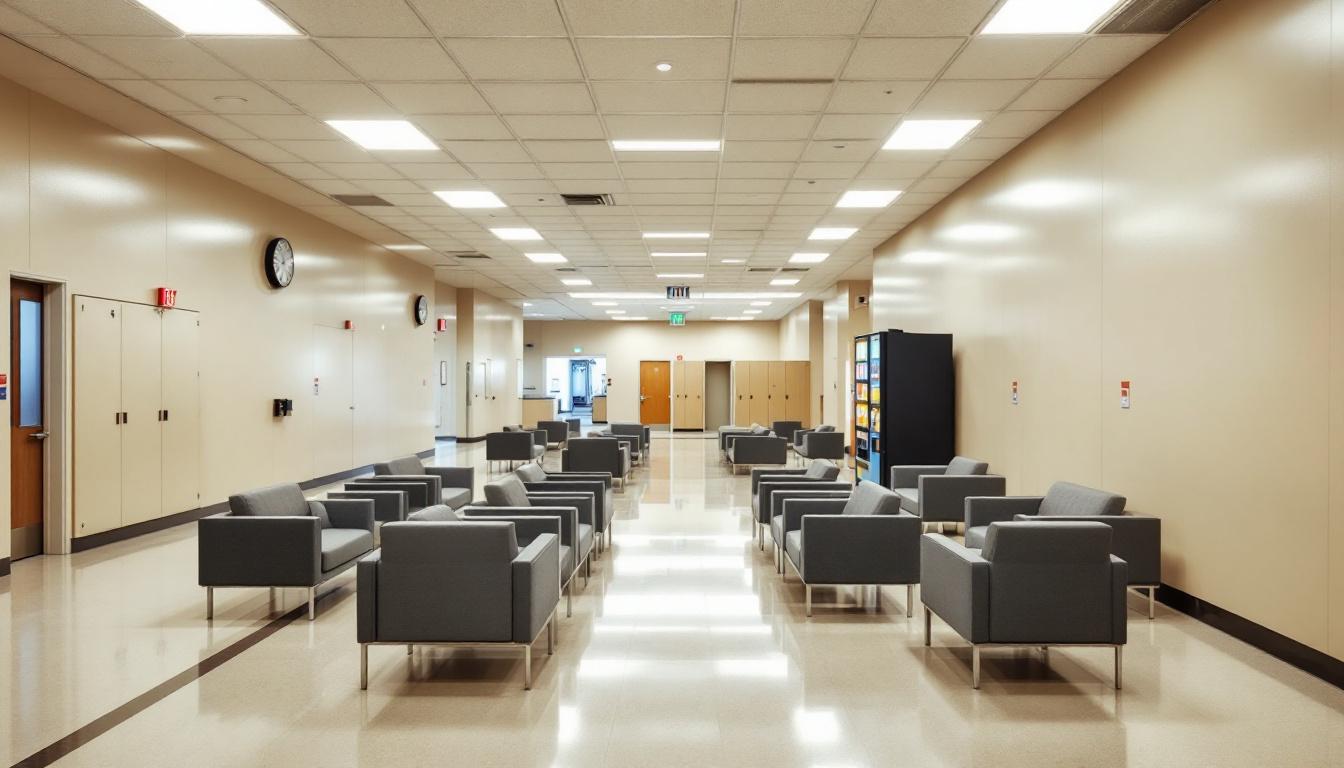
Structured routines and institutional protocols shape every aspect of the experience for the population at Marion Correctional Institution. The facility operates on a regimented schedule that now governs daily activities from early morning wake-up calls through evening lockdown procedures. Residents regularly participate in scheduled counts, meal services, and movement between housing units and program areas. Security procedures typically include controlled movement throughout the facility, with staff supervision during transitions between different zones.
Living accommodations generally consist of shared cells or dormitory-style housing units, where the population maintains personal belongings within established guidelines. While space may be limited, residents can typically purchase approved items through the commissary system to supplement basic necessities. Housing assignments often depend on security classification levels and behavioral records. Additionally, the facility usually provides basic furnishings and bedding, though personal property allowances vary based on institutional policies.
Structured programming schedules supply educational opportunities, vocational training, and recreational activities throughout the week. Work assignments may include kitchen duties, maintenance tasks, or facility operations that help residents develop job skills while contributing to daily operations. The population typically has access to outdoor recreation areas and indoor exercise facilities during designated periods. Family connections remain important through regular visitation schedules and phone privileges, allowing residents to maintain contact with loved ones. Additionally, mail correspondence and approved video calling services often provide alternative communication methods when in-person visits aren't possible.
Ready to Connect?
Start communicating with your loved one today
Search for an Inmate
